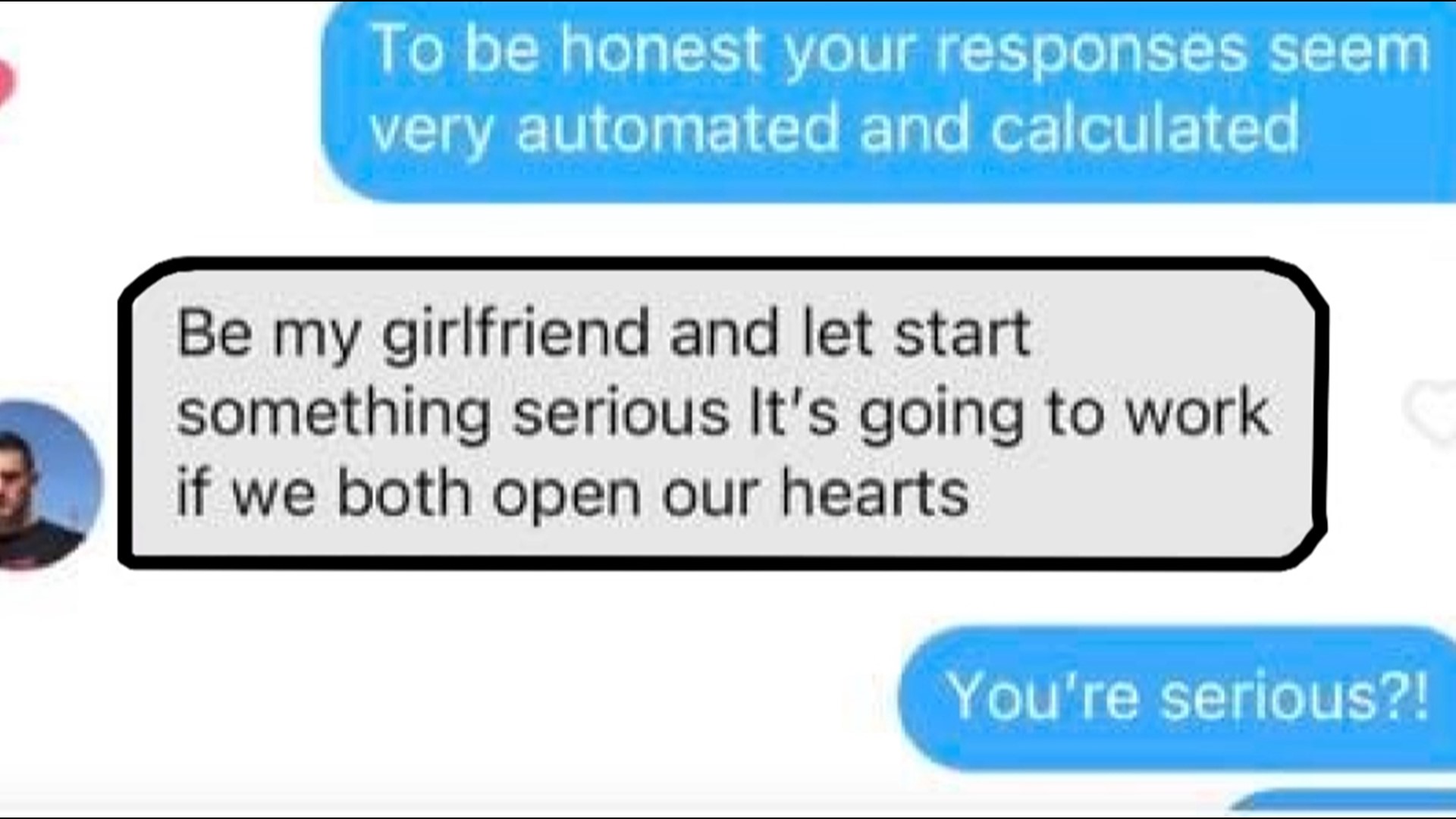Gallery
Photos from events, contest for the best costume, videos from master classes.
 |  |
 |  |
 |  |
 |  |
 |  |
 |
"I've had the blues, the reds, and the pinks. One thing’s for sure: Love stinks." Far be it from us to criticize love on Valentine’s Day, but “Love Stinks” – the 80s hit by the J. Geils Band – describes what the FTC Consumer Sentinel Data Book tells us about the injury inflicted by romance scammers. And one statistic is particularly surprising. It’s Valentine’s Day and love is in the air. You may think you spend a lot on flowers or chocolate, but losing money in a romance scam would cost you even more. Last year, people reported losing $143 million to romance scams – a higher total than for any other type of scam reported to the FTC. It’s almost Valentine’s Day. Maybe you’ve already sent a card to your grandmother, grandfather, or the older adult in your life. But if you haven’t told them lately that you love them, pick up the phone and call, too. While you’re catching up, remind them that you’ll never pressure them to wire you money or buy you gift cards — but a scammer might. Valentine’s Day is this weekend, so over the next three days, we’re talking about romance scams. Lots of people have profiles on dating apps to meet someone — maybe even more so in these virtual times. And many people have built successful relationships from an online start. But what if, instead of finding a potential partner, you find a 5. Fake florist scams. Last-minute flower orders can lead to fraudulent purchases. Some phony online florists take payment but never deliver the flowers, while others send subpar or wilted arrangements. Many consumers report falling victim to fake florists who advertise heavily around Valentine’s Day but disappear after taking orders. Red Flags: The total amount of money people reported losing to romance scams in 2019 is six times higher than it was five years ago – from $33 million lost in 2015 to $201 million in 2019. In fact, for the past two years, romance scams have topped the charts with people reporting to the FTC more money lost to romance scams than any other form of fraud. The FTC encourages people active on dating sites to use their heads as well as their hearts, and to learn more about how to spot the signs of an online dating scam. Sending flowers? Flowers can say “I’m thinking of you” on Valentine's Day, and your local florist is likely just a phone call away. Or so you might think. Dating apps might peak on Valentine's Day, but they are a gushing sluiceway for frauds known as romance scams. Now they are getting extra attention from five federal agencies, including the Commodity Futures Trading Commission (CFTC). As we approach Veterans Day, we thank our veterans for their service and sacrifice. But not everyone has a vet’s best interests in mind. Whether you left the service decades ago or you’re planning your transition to civilian life, scammers will try to get you to send money or share personal information. This Valentine’s Day is shaping up to be big, according to projections by the National Retail Federation, which suggests that total consumer spending may reach $27.5 billion. The Federal Trade Commission says romance scam victims lost more than $1 billion in 2023 and more than $800 million in 2024. A 2023 AARP report found older Americans are also particularly Playing cupid? A quick online shopping scroll shows tons of exciting Valentine’s gifts for those you love. If you order now, many sellers guarantee delivery on or before Valentine’s Day. But what happens when your order doesn’t arrive by that guaranteed date? As a customer, you have rights. Here’s what to know. The FTC works to prevent fraudulent, deceptive, and unfair business practices in the marketplace. The FTC provides information that helps consumers spot, stop, and avoid these practices. Here is a summary of Valentine’s Day safety tips from the FTC: Valentine’s Day Safety Tips for Sending Flowers. If you want to send flowers to a special With Valentine’s Day approaching, the U.S. Postal Service and the U.S. Postal Inspection Service want consumers to be aware they may be targeted for romance scams, a deceptive form of fraud that If you've become the victim of a credit card romance scam, immediately contact the Federal Trade Commission and FBI, among others. You met someone online, fell in love, bought a gift or sent them With Valentine’s Day approaching, the U.S. Postal Service (USPS) and the U.S. Postal Inspection Service (USPIS) want consumers to be aware they may be targeted for romance scams; a deceptive fraud that preys on individuals seeking companionship. LOUISVILLE, Ky. (WAVE) - If a celebrity is messaging you on Facebook and asking for money, they may not be real. With Valentine’s Day approaching, experts are warning people about romance scams. That is when people assume they are in a relationship with someone who isn’t real. Representatives Romance scam fraudsters ramping up for Valentine's Day, says Missouri Secretary of State Charles Dunlap, Columbia Daily Tribune Tue, February 11, 2025 at 6:28 PM UTC A record $1.3 billion was lost to romance scams in 2022, according to the Federal Trade Commission. Some of the top lies told by romance scammers include "I or someone close to me is sick, hurt, or in jail," followed by "I can teach you how to invest," data from the FTC found. The United States Postal Service (USPS) and the United States Postal Inspection Service (USPIS) issue warnings about the risk of romance scams as Valentine’s Day approaches.
Articles and news, personal stories, interviews with experts.
Photos from events, contest for the best costume, videos from master classes.
 |  |
 |  |
 |  |
 |  |
 |  |
 |